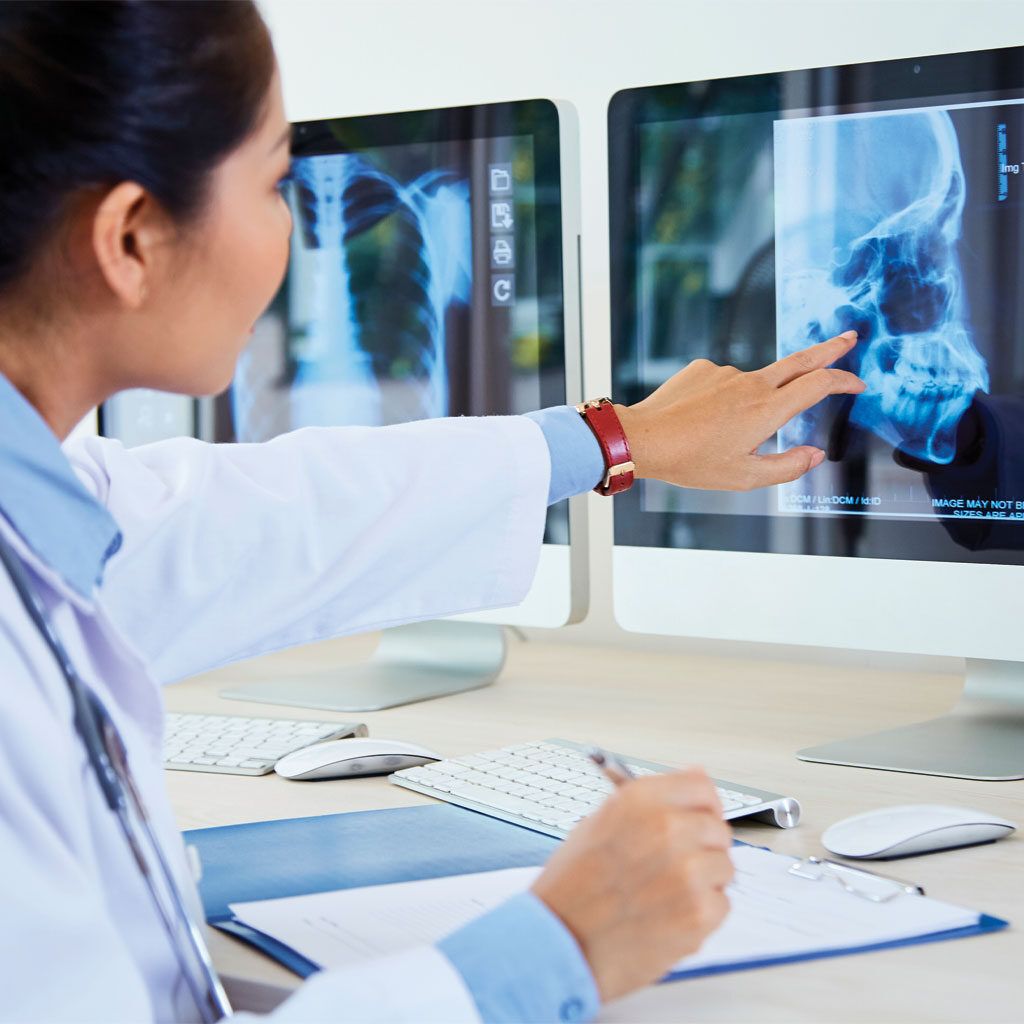X-Ray (Digital Radiography)
The X-ray has been around for more than 100 years. It is the oldest and most frequently used form of imaging to see inside the human body. X-ray uses a focused beam and a special detector to obtain images of your anatomy. It is safe and proven technology.
X-rays are absorbed differently by the various body tissues and organs in the body. Dense structures, like bone, absorb most x-rays and appears white on the image. Less dense tissues appear in shades of gray. X-rays that pass through air, like in the lungs and colon, aren’t absorbed at all and appear black on the image.
Preparation Instructions
For most X-rays, no special preparation is required. However certain types of X-ray tests require you to follow special preparation instructions prior to your test:
An Intravenous Pyelogram (IVP) is an x-ray of the kidneys, ureters and bladder performed after a dye is injected into a vein.
Special instructions:
- Drink four 8-ounce glasses of water between 1:00 pm and 10:00 pm the day BEFORE your exam
- On the day of your exam, you may have coffee, water or juice until 3 hours prior to exam.
- You may also take medication with water, as prescribed by your physician.
A Barium Enema is a special x-ray of the large intestine, which includes the colon and rectum. During this procedure, barium sulfate is injected into the colon.
Special instructions:
- DAY BEFORE EXAM: Clear liquids at noon and supper meals. Eat no solid food. Drink six 8-ounce glasses of water between 1:00 pm and 9:00 pm. At 5:00 pm drink one bottle of Citrate of Magnesia (10 ounces) At 8:00 pm take two Biscodyl (Dulcolax) pills.
- DAY OF EXAM: Insert one Biscodyl (Dulcolax) rectal suppository upon arising. No solid food. You may have coffee, water or juice until one hour prior to the exam.
An Upper GI Series is a series of x-rays of the esophagus. The x-rays are taken after the patient drinks a barium solution.
Special instructions:
- DAY BEFORE EXAM: Nothing to eat or drink after midnight.
If you are pregnant, please tell your doctor or a patient representative before your test.

